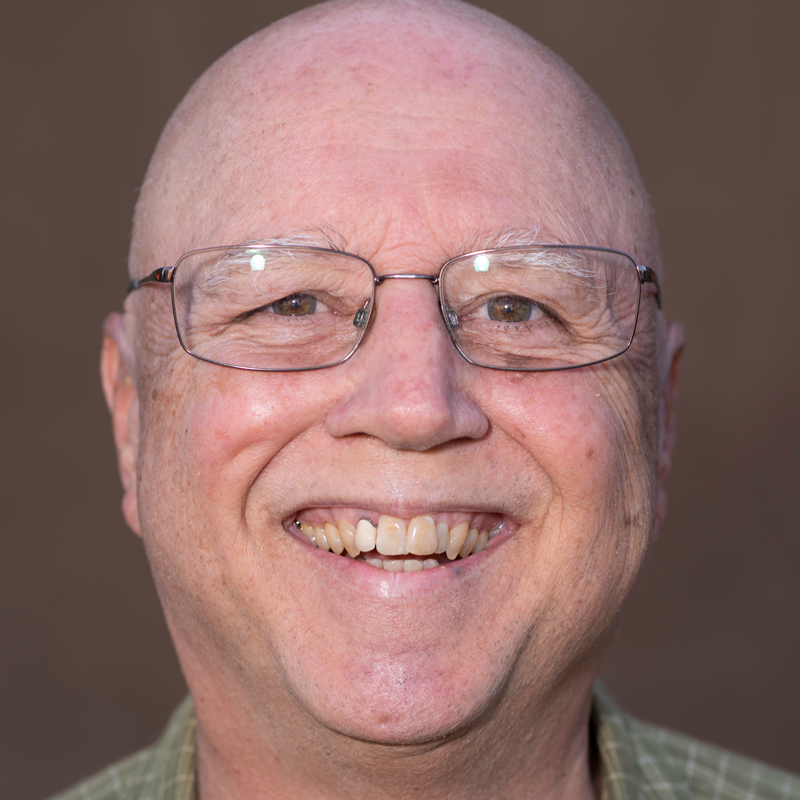
Fresno Police Officers Beat Homeless Man
In February 2009, Fresno police officers Jeff Gross and Scott Payn were caught on videotape beating Glen Beaty. Beaty, who was homeless at the time, had been sleeping under a tree before the incident in which the police are seen hitting him repeatedly in the face.
The officers were not arrested for using excessive force. Instead, Beaty was arrested and put into the Fresno County Jail. Police Chief Jerry Dyer claimed Beaty had attacked his officers. It took an ACLU lawsuit to force the FPD to release the names of the officers involved. Despite the public accusations by Dyer, Beaty was never charged with a crime in the incident.
Beaty remained in the Fresno County Jail for eight months and was then transferred to the Metropolitan State Hospital in Norwalk, California, where he is confined against his will to this day. Last month, it was announced that a lawsuit Beaty filed against the City of Fresno was being settled by his court-appointed guardian for $75,000. There is no indication that Beaty has approved this settlement. His legal counsel expects Beaty to be restored to mental competency and returned to Fresno in April 2011.
Some legal observers say that it was “fortunate” for the city of Fresno to settle this case with Beaty’s guardian just before Beaty is to be released. One attorney told the Community Alliance that if this case had gone to court, the city probably would have had to pay more than one million dollars. A hearing on the settlement is scheduled for January 10.
ACLU Files Complaint about the Fresno County Jail
The Fresno chapter of the American Civil Liberties Union (ACLU) has requested an investigation of practices in the Fresno County Jail that they say are violating prisoners’ civil and human rights. They say that inmates with mental health issues are not being given their prescribed medications, and that is affecting their ability to assist in their legal defense. A lawsuit in Fresno Superior Court claims that the withholding of psychiatric medication also has resulted in the injury of an inmate.
The ACLU letter went to the Medical Board of California Central Complaint Unit, the Board of Psychology and the Fresno County Grand Jury. The letter says, in part:
The significance of these failures cannot be overstated. They result in psychiatric treatment that is below the standard of care, failure to competently diagnose and competently treat psychotic mental disorders, and failure to give informed consent of treatment options for mental disorders. From a Constitutional standpoint, all of these factors contribute to unnecessary suffering and deny the inmate a right to participate in his own defense. Therefore, in the spirit of our mission statement, which supports the program of the ACLU-NC intending to defend, maintain, and extend the civil liberties guaranteed by the Constitution of the United States, and by the Constitution of the State of California, we request your agency undertake a formal review of these issues.
The letter continues:
County jails appear to meet the definition of “mental health facility, program, or service” set forth in Welfare and Institution Code § 5500(c). This definition includes “any publicly operated or supported mental health facility or program . . . and publicly supported agencies providing . . . mental health services to mentally disabled clients.” Similarly, the United States Supreme Court has held that the Americans With Disabilities Act applies to state prisons because prisons provide “services, programs, or activities” within the meaning of the ADA. The involuntary nature of incarceration does not affect the application of the ADA to inmates. (See Yeskey v. Pennsylvania Department of Corrections (1998) 524 U.S. 206.) In evaluating the current situation at the County jail, the ACLU board regards the discussion of prisoner medical care by our Supreme Court as prescient:
An inmate must rely on prison authorities to treat his medical needs; if the authorities fail to do so, those needs will not be met. In the worst cases, such a failure may actually produce “physical torture or a lingering death,” the evils of the most immediate concern to the drafters of the [Eighth] Amendment. In less serious cases, denial of medical care may result in pain and suffering which no one suggests would serve any penological purpose. The infliction of such unnecessary suffering is inconsistent with contemporary standards of decency. . . . (Estelle v. Gamble (1976) 429, U.S. 97, 103, cited by Plata v. Schwarzenegger (9th Cir. 2009) 560 F.3d. 976).
There are reasons to believe that current staff members at the Fresno County Jail withhold or change medications for inmates who have been diagnosed with needs for specific psychotropic medications, with the intention of reducing operational costs. These “budget-cutting” efforts, it is argued, are putting inmates’ lives at risk and affecting their ability to assist competently in their legal defense.
City Attorney Says Fresno Doesn’t Have Enough Money to Harass the Homeless
The Fresno Bee reported last month that City Attorney Jim Sanchez said, “We’ve ceased to prosecute ‘quality of life’ violations. We no longer have the resources.” Sanchez was referring to quality of life violations such as the city ordinance that prohibits homeless people from asking for money from median islands.
The ordinance, passed in 2010, allowed nonprofits and other groups to use the median islands once or twice a year but made it virtually impossible for the homeless to get a permit. A homeless person would have to pay a fee, have insurance, wear a safety vest and more. Homeless advocates claimed the ordinance was a transparent attempt to make them less visible to the community. It also had the effect of making it more difficult for the homeless to get the money they need to survive.
City Council member Larry Westerlund, who pushed the ordinance through the council, said that he was surprised by Sanchez’s comments and that he thought the city should continue to prosecute anyone who violates quality of life regulations. Sanchez said the changes were made necessary because his office faces a $500,000 budget cut after January 1.
Drug Wars Continue in Fresno County
Medical marijuana users have been under attack, first by the city of Fresno and now by the County Board of Supervisors. In an attack on December 7, which happened to be Pearl Harbor Day, Fresno County Sheriff Margaret Mims and a representative from the federal war on drugs convinced Fresno County to ban medical marijuana dispensaries.
The bomb was dropped by the board of supervisors on a packed house of collective operators and patients, but it wasn’t a surprise. The same board banned outdoor cultivation in September, but a judge stayed enforcement until November 30 so that plants could be harvested. A comprehensive dispensary ordinance was prepared by staff at the board’s earlier behest, but the board voted to pursue a permanent ban instead, following the lead of Fresno, Clovis and most other cities within the county. The move drew immediate threats of legal action by collective operators.
When it was time for public comment, one common theme was the county’s failure to act sooner. “If people do not know what the rules are, how can we follow them?” asked Dennis Nebeker of the Central Valley Collective. “If we’re going to say these medical marijuana patients are legal, they have a right to this medicine, but don’t get it here in Fresno … where do they go?”
Sean Dwyer of the California Herbal Relief Center told the board he has five employees, including a CalWorks trainee hired with state funding. Those workers now face job loss in a county with 15% unemployment.
“We currently are employing hundreds of people in Fresno County between the 15 dispensaries,” Dwyer told the board. “If you ban us, you’ll be forcing those jobs out of this county. Also, you’ll be forcing millions of dollars in sales revenue every year out of this county.” Dwyer went on to propose a dispensary tax to help prop up the county’s shaky budget.
Merilee Amos, who represents Fig Garden homeowners, said she used WeedMaps to look up the three Shaw Avenue dispensaries adjacent to their upscale neighborhood. What she found in the comments wasn’t medical, Amos said, with one reviewer saying, “This place is the shit.”
Susan Anderson was the only supervisor to oppose the ban, sounding a conciliatory note after the board’s vote. “This is not going to be the law forever,” she told the audience. “It’s not.”
But Anderson also suggested that medical cannabis advocates have to work to fix a system where legitimate patients and recreational users co-mingle freely.
“I think someday we’ll have safe access for those who truly need it,” Anderson said. “But not for everybody.” For more information, see http://calpotnews.com/.
Good News for the Homeless
A City of Fresno trash bin has been put at the homeless encampment at Santa Clara and E street in downtown Fresno. The homeless, who live outside the gate of the Poverello House, have been requesting a trash bin for months now, so they can keep their encampment clean.
Thanks to the generous contributions of readers of the Community Alliance newspaper, the trash bin arrived on the day before Christmas Eve. Homeless advocates who have been demanding basic public services for the homeless believe this is a step in the right direction. Community Alliance newspaper editor Mike Rhodes said that “this is not going to end homelessness, but it will provide the homeless with a little more dignity as they wait for the city to fulfill their promise of housing the homeless.”
Donations to help pay for the trash bin can be sent to the Community Alliance, P.O. Box 5077, Fresno CA 93755 (note that it is for the homeless). Every dollar donated will go to benefit the homeless. If enough money is donated, portable toilets will be set up at the encampment.

